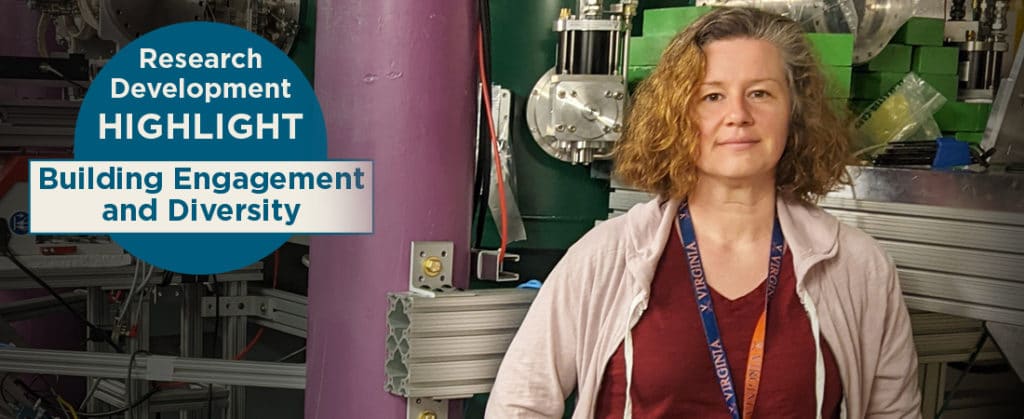When Nadia Fomin was an undergraduate in physics at the University of Virginia, she was the only woman in a class of 20, so she knows what it is like to feel isolated in a research environment. Fomin’s experience as a student inspired her to partner with the Oak Ridge National Laboratory on a new fellowship program for nuclear physics students.
The new fellowship program, Nuclear Physics in East Tennessee (NPET), is designed to encourage students from diverse backgrounds to consider a career in nuclear physics.
“To build engagement and diversity within nuclear physics, we have to admit a diverse body of graduate students. To do that, we need a diverse body of undergraduates. We need to recruit and create an environment with more belonging and inclusivity,” explained Fomin, an associate professor of nuclear physics. “It’s more difficult to succeed when you have a feeling of otherness. I want no one to have that feeling; it’s a distraction from one’s studies.”
Fomin, along with colleagues at UT and ORNL, were recently awarded $450,000 over two years from the Department of Energy’s Office of Science for Nuclear Physics program to create and launch NPET.
Each year, the program will provide paid full-time research internships during the summer and part-time during the academic year. Students must be currently enrolled as a full-time physics major in a degree-seeking program at an accredited Minority Serving Institution.
The NPET fellows will have access to leadership-class facilities at ORNL, such as the world’s second most powerful computer (Summit) and the most intense spallation-based source of neutrons in the world (Spallation Neutron Source). In addition, they will receive professional development in areas such as communications, ethics, researcher identity, career planning, and equity and inclusion awareness and skills.
“We believe the teams required to solve the nation’s most pressing science challenges are those who bring together a wide range of backgrounds and perspectives,” said Fomin.
Fomin engaged the research development (RD) staff in the Office of Research and Engagement to assist with the proposal.
“I felt very supported by the university,” describing the assistance provided by Jennifer Webster, interim RD director, and Sharon Pound, RD manager.
Pound helped Fomin focus the text of the proposal. Together, they addressed current gaps in the field that NPET would help fill, acknowledged how challenges would be overcome, and identified skills that students need to succeed, while keeping to the allotted number of pages.
“She helped us to not get carried away with the physics and to address the larger goals of the proposal, to pay attention to the solicitation,” said Fomin, encouraging others to reach out to RD for advice and assistance during the proposal development process. “Definitely reach out, ask questions; no matter what it is, they’ve heard it before,” she adds.
Pound said she gets her greatest satisfaction supporting proposals that ultimately serve individuals from underserved populations. Other programs that have been funded over the years include Increasing Teacher Equity to Address Community High Needs (I-TEACH) in 2019, ASCEND: Adaptations for a Sustainable Climate of Excellence and Diversity in 2018, and VolsTeach for Appalachia in 2017.
For more information about proposal development support, contact AVCRD@utk.edu.
